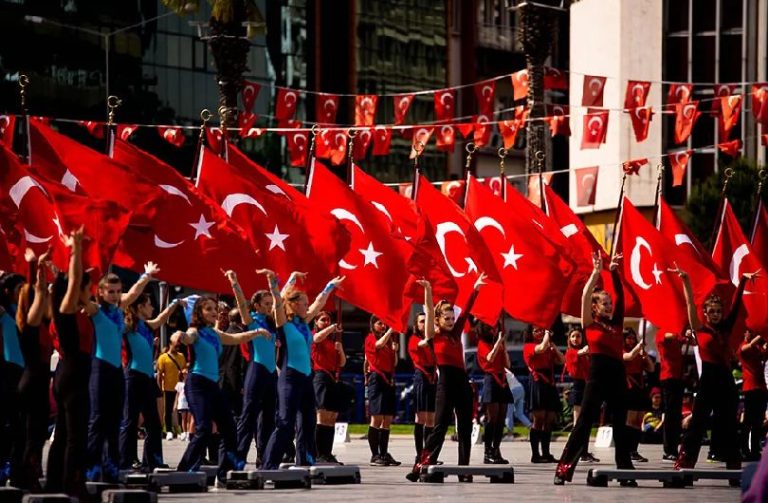Turkey, a country where East meets West, is a land of vibrant traditions and lively celebrations. Its Turkish Festivalsand cultural events reflect the rich history and diverse heritage of the nation. In this blog post, we will explore some of the most significant Turkish festivals and celebrations, shedding light on their unique customs, historical roots, and the joyous spirit they embody.
Turkish Festival The Joy of Spring: Hıdırellez Festival
One of Turkey’s most beloved festivals, Hıdırellez, is celebrated on May 5th and 6th, marking the arrival of spring. This ancient festival is believed to bring prosperity and good fortune. People light bonfires, jump over them for good luck, and make wishes by tying ribbons to trees. Traditional music, dance, and communal feasts are integral parts of the celebration, creating an atmosphere of joy and renewal.
The Festive Spirit of Ramadan: Ramazan Bayramı
Ramazan Bayramı, also known as Eid al-Fitr, is a significant Islamic holiday marking the end of Ramadan, the holy month of fasting. This three-day festival is a time for family gatherings, feasting, and giving to those in need. Special dishes such as baklava and other sweets are prepared, and children receive gifts and new clothes. The holiday emphasizes community, charity, and gratitude.
The Festival of Sacrifice: Kurban Bayramı
Kurban Bayramı, or Eid al-Adha, is another major Islamic holiday in Turkey. Celebrated approximately 70 days after Ramadan Bayramı, it commemorates the willingness of Ibrahim (Abraham) to sacrifice his son in obedience to God. The festival involves the ritual sacrifice of an animal, typically a sheep, with the meat distributed among family, friends, and the less fortunate. It is a time for prayer, reflection, and acts of generosity.
Republic Day: Cumhuriyet Bayramı
Cumhuriyet Bayramı on October 29th celebrates the proclamation of the Turkish Republic in 1923. This national holiday features parades, concerts, and fireworks across the country. In Istanbul and Ankara, the celebrations are particularly grand, with official ceremonies, military displays, and cultural performances that honor the founding of the modern Turkish state by Mustafa Kemal Atatürk.
Turkish Festivals Commemorating Victory: Victory Day
Victory Day on August 30th commemorates the victory in the Battle of Dumlupınar during the Turkish War of Independence. The day is marked by military parades, ceremonies at monuments and memorials, and various patriotic events. It is a day of national pride and remembrance, celebrating the resilience and courage of the Turkish people.
Turkish Festival A Night of Wishes: Şeb-i Arus
Şeb-i Arus, also known as the Night of Union, is a mystical celebration held on December 17th to commemorate the death of the great Sufi poet Rumi. The city of Konya becomes the focal point of this celebration, with whirling dervish ceremonies, poetry readings, and spiritual gatherings. It is a time for reflection, spiritual growth, and celebrating the life and teachings of Rumi.
The Enthralling Camel Wrestling Turkish Festivals
A unique and lesser-known event is the Camel Wrestling Festival, held primarily in the Aegean region, particularly in Selçuk. This centuries-old tradition sees camels, specially trained and adorned with colorful decorations, competing in wrestling matches. The festival is a lively affair with music, dance, and local delicacies, drawing crowds from near and far.
Turkish Festivals and Celebrations Culture
Turkish festivals and celebrations offer a rich tapestry of cultural experiences that reflect the country’s historical depth and diverse traditions. Whether it’s the joyful welcome of spring, the solemnity of religious holidays, or the patriotic pride on national days, these events provide a fascinating insight into Turkish life and heritage. By participating in these celebrations, one can truly appreciate the vibrant spirit and enduring traditions of Turkey.

